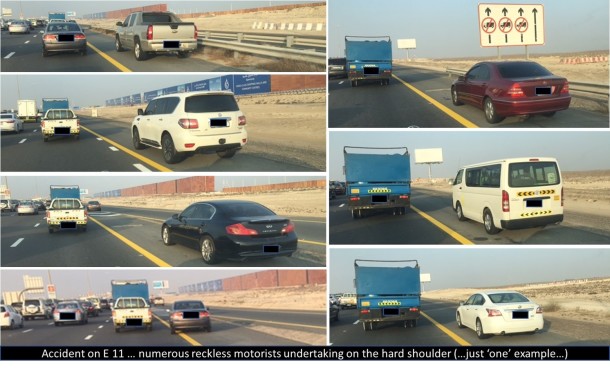
Hard shoulders are designed to allow vehicles in emergency situations to stop safely and wait for help. Also, they help emergency crews of police ambulance and fire trucks to reach the locations of accidents, or attend emergencies.
Unfortunately we witness the misuse of shoulders on a daily basis. This can be a dangerous source of accidents and many collisions happen every year when vehicles travelling at high speed collide with vehicles stopped on shoulders.
Just this year we witnessed a series of accidents through collisions with vehicles parked on the hard shoulder. In one tragic case, youth who gathered on the hard shoulder were hit and killed by a speeding vehicle.
How to do it right
- Unless and only if your car has broken down, you must not stop on the hard shoulder!
- Stay away from the hard shoulder – it’s a very dangerous place to be!
- If your vehicle breaks down, move it even beyond the hard shoulder – it’s safer there!
- Get your passengers out of your car and make sure they wait beyond the hard shoulder in a very safe distance to the traffic!
- Place your emergency triangle at least 100 meters towards to oncoming traffic to warn other motorists!
Watch out for this
- Do not use the hard shoulder to park!
- Do not use the hard shoulder to drive or reverse when you missed an exit!
- Do not stop on the hard shoulder to allow passengers to enter or exit your vehicle:
- at Metro stations
- to take photos
- or any other reason
- Do not gather at hard shoulders to meet and hang out
- Don’t drive on the shoulder in traffic jams or to reach the next exit









Pingback: reversing exit